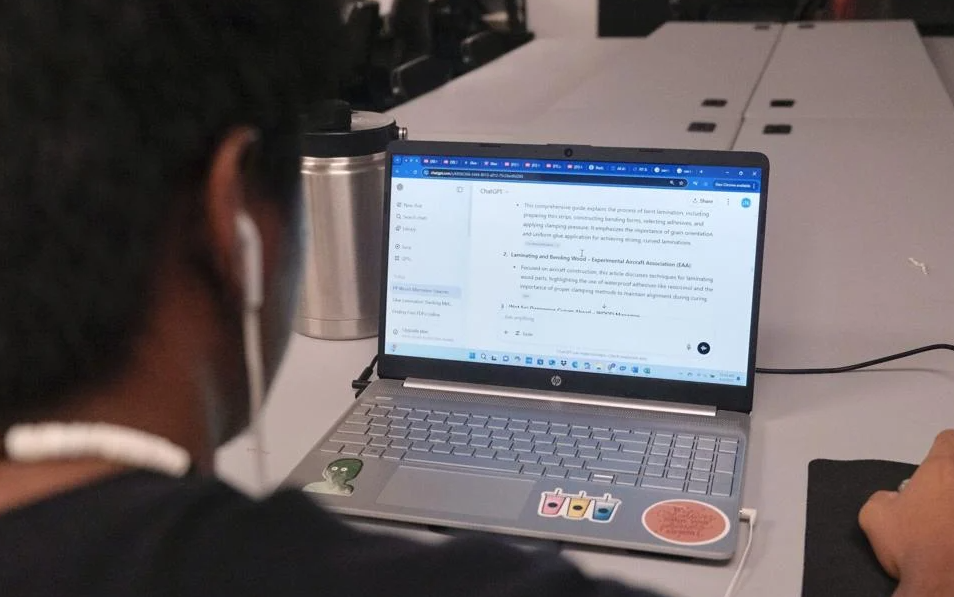
A University of Guam student uses ChatGPT at UOG’s computer lab in Mangilao on June 3, 2025.
HAGÅTÑA (The Guam Daily Post) — There’s no disputing that artificial intelligence technologies are rapidly advancing and being widely deployed across both public and private sectors, according to Bill 64-38 by Sen. Telo Taitague.
Her measure would establish a government-led task force to “develop a regulatory framework that balances technological advancement with the protection of fundamental rights guaranteed by the U.S. Constitution and the Organic Act of Guam.”
The group would study and evaluate current and emerging AI technologies, assess existing laws and regulations related to AI, identify risks and benefits, and develop recommendations for a comprehensive regulatory framework.
In a public hearing Monday, public and private sector representatives weighed in on the wide range of benefits and challenges that AI brings.
Nicole Nelson, the acting director of the Office of Technology, said the oversight of AI policies and implementation should be a mandated in law to leverage its technical expertise and institutional knowledge.
“This integration would also ensure continuity and accountability, regardless of changes in administration or personnel,” Nelson said.
Supreme Court of Guam Chief Justice Robert Torres said, “All AI-generated content must be reviewed for accuracy. It has to comply with legal and ethical obligations and the integrity of the judicial process.”
Businessman Charlie Hermosa testified that the focus of the bill should be more on economic and business development.
“The reason why I say that is because the way AI is moving, it’s actually evened out the playing field today, worldwide. There is no reason why the younger generations…are not able to come up with business models that could actually compete with anybody around the world.”
“If we start framing (the bill) up where it becomes regulatory, then I believe that we may be stifling innovation,” Hermosa said.
Longtime local attorney, Curtis Van de Veld, said there’s no question that AI could “overtake us if we don’t start addressing it,” but the policies need to be understood by all, especially the younger generation.
“Because the concept of artificial intelligence and its use isn’t just exclusively for all of the government agencies and all of the business entities that intend to utilize it. It applies to everyone,” he said.











